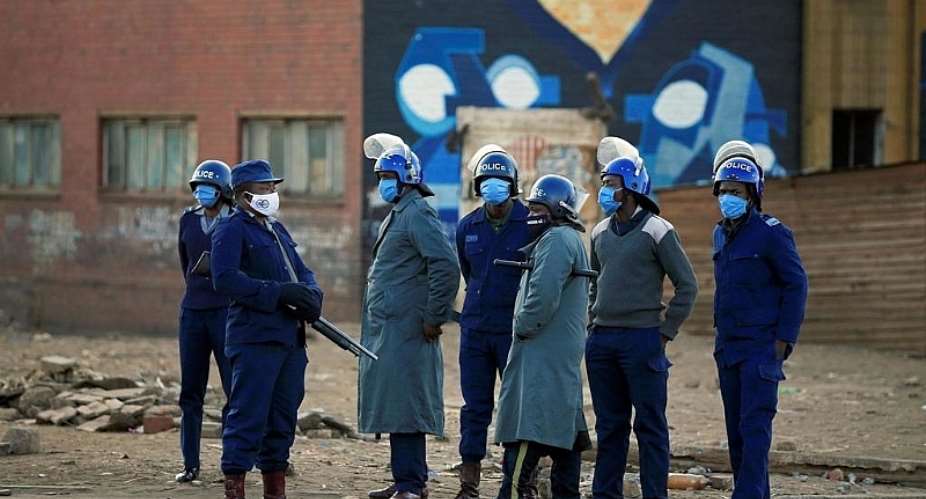A new report has been launched in Zimbabwe showing a sharp increase in domestic violence during the country's two-month Covid-19 lockdown between April and May.
The report, entitled Violence Against Women and Girls During the Covid-19 Crisis in Zimbabwe, gathered data from five NGOs working with survivors of gender-based violence, including the Musasa Project, the Adult Rape Clinic and the Zimbabwe Women Lawyers Association.
Data was gathered in March, April and May. This coincided with the month before and the two months of the lockdown imposed by President Emmerson Mnangagwa's government on March 30 to prevent the spread of coronavirus.
Household tensions
The data showed that reports of physical violence went up by 38.5 percent during April and May.
“The increase in help-seeking could be due to increased incidence of violence, increased severity of violence, or the inability to use alternative options for escaping violence such as going to stay with relatives,” the report notes.
Reports of emotional violence over the same period were up by 80 percent. This represented the sharpest rise during lockdown, “possibly due to heightened household tensions resulting from confined living conditions and increased financial stress”.
Most Zimbabweans depend on the informal sector, so the lockdown measures severely hampered families' abilities to earn a living.
Most restrictions have now been lifted, with infection rates appearing to slow down. Fatalities have so far totalled 228, well below worst-case scenarios.
Intensified violence
The researchers did not collect figures of domestic violence at the community level, relying on figures of cases reported to NGOs. Experts say that since less than five percent of gender-based violence survivors seek the support of NGOs, the reported cases are likely a fraction of those that did occur.
Most of the reports indicate that violence was perpetrated by “intimate partners,” a trend similar to before the lockdown. And staff at shelters noticed that violence intensified to levels not common before the lockdown.
“One NGO supported a survivor both of whose arms were broken; another survivor who sought support had her face cut with an axe, others had broken legs,” the report says.
Not all cases involved domestic perpetrators. There were also claims of police rape of sex workers arrested during lockdown. The report noted 15 claims of police violence in two separate communities.
The increase in reports of violence to the NGOs came despite the obstacles placed in the way of survivors trying to get help. These included travel restrictions in place during lockdown, police roadblocks and severe limits on public transport.





 Tuesday’s downpour destroys ceiling of Circuit Court '8' in Accra
Tuesday’s downpour destroys ceiling of Circuit Court '8' in Accra
 SOEs shouldn't compromise on ethical standards, accountability – Akufo-Addo
SOEs shouldn't compromise on ethical standards, accountability – Akufo-Addo
 Father of 2-year-old boy attacked by dog appeals for financial support
Father of 2-year-old boy attacked by dog appeals for financial support
 Jubilee House National Security Operative allegedly swindles businessman over sa...
Jubilee House National Security Operative allegedly swindles businessman over sa...
 Nobody can order dumsor timetable except Energy Minister – Osafo-Maafo
Nobody can order dumsor timetable except Energy Minister – Osafo-Maafo
 Mahama wishes National Chief Imam as he clock 105 years today
Mahama wishes National Chief Imam as he clock 105 years today
 J.B.Danquah Adu’s murder trial: Case adjourned to April 29
J.B.Danquah Adu’s murder trial: Case adjourned to April 29
 High Court issues arrest warrant for former MASLOC Boss
High Court issues arrest warrant for former MASLOC Boss
 Align academic curriculum with industry needs — Stanbic Bank Ghana CEO advocates
Align academic curriculum with industry needs — Stanbic Bank Ghana CEO advocates
 Election 2024: We'll declare the results and let Ghanaians know we've won - Manh...
Election 2024: We'll declare the results and let Ghanaians know we've won - Manh...
